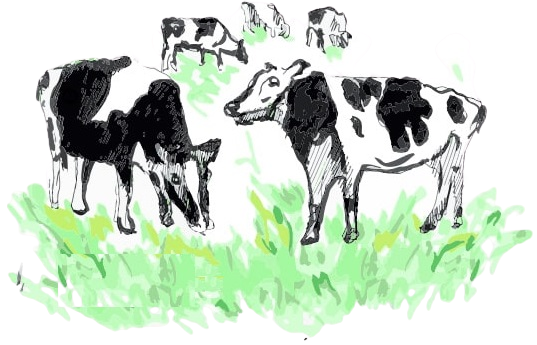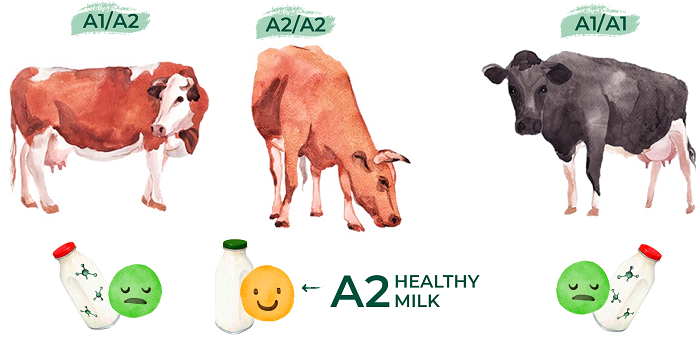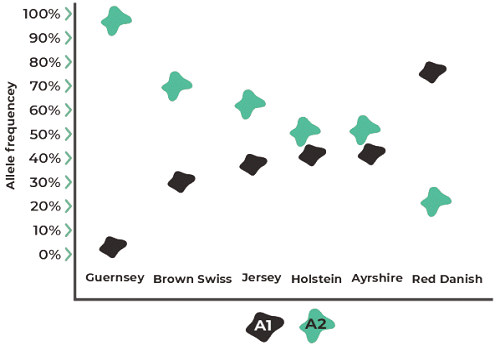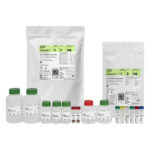Reagent kits for PCR
Detection of A1 & A2 alleles of the β-casein

β‑casein is a protein consisting of a chain of 224 amino acids, which accounts for about 30% of all milk proteins. There are two major variants of β‑casein: A1 and A2. Variant A1 differs from A2 by only one amino acid. As a result, dairy products containing A1 or A2 β‑casein are digested differently. As a result of β‑casein metabolism «opioid peptide» BCM‑7 appears and about 25% of people are sensitive to this component. Some people who believe they have milk intolerance may be sensitive to A1 β‑casein. Consumption of milk with A2 β‑casein reduces acute gastrointestinal symptoms of milk intolerance, while regular milk with A1 β‑casein reduces lactase activity and enhances gastrointestinal symptoms.

The formation of a genetically safe group of highly productive dairy cattle herd is one of the successful approaches in modern animal husbandry to increase the productivity and A2 milk yield without A1 impurities. This approach will not only guarantee the “healthy” A2 milk production, but also completely displace and eliminate the production of A1 milk within 10 years.
There are 3 types of cows:

A1/A2 status is determined in cows and bulls by a pair of genes on the 6th chromosome, namely, polymorphic variants of the β‑casein gene β‑CNA1 and β‑CNA2, respectively. Each cow and bull carries two copies of this gene, and two main variants are distinguished – the A1 and A2 β‑casein alleles. Regardless of the breed, a herd of cattle is formed by three types of animals: A2A2 homozygous genotype, A1A1 homozygous genotype and A1A2 heterozygous genotype.
Figures 1 and 2 show the frequency of alleles and genotypes occurrence in various breeds.


To form a prosperous group of high-yielding dairy herd of cattle, it is advisable to select and sort animals and to form a separate herd of only homozygous type A2A2 cows and bulls, which give only A2 milk, gradually increasing the number of such animals and completely excluding the production of A1 milk.

At the current stage, expensive sequencing methods or time-consuming approaches using gel electrophoresis are mainly used for genotyping and certification of cattle. Unlike other cow genotyping technologies based on β‑casein variants, real-time PCR analysis is the fastest, most convenient and affordable method that allows sensitive and specific detection of A1 and/or A2 DNA in samples. This approach is implemented in the «ALG-CASEIN A1/A2 MAX».
«ALG-CASEIN A1/A2 MAX» – complete reagent kit, includes reagents for all stages of the study: samples prelysis, DNA extraction and polymerase chain reaction (PCR). The reagent kit is designed to study 96 samples.

